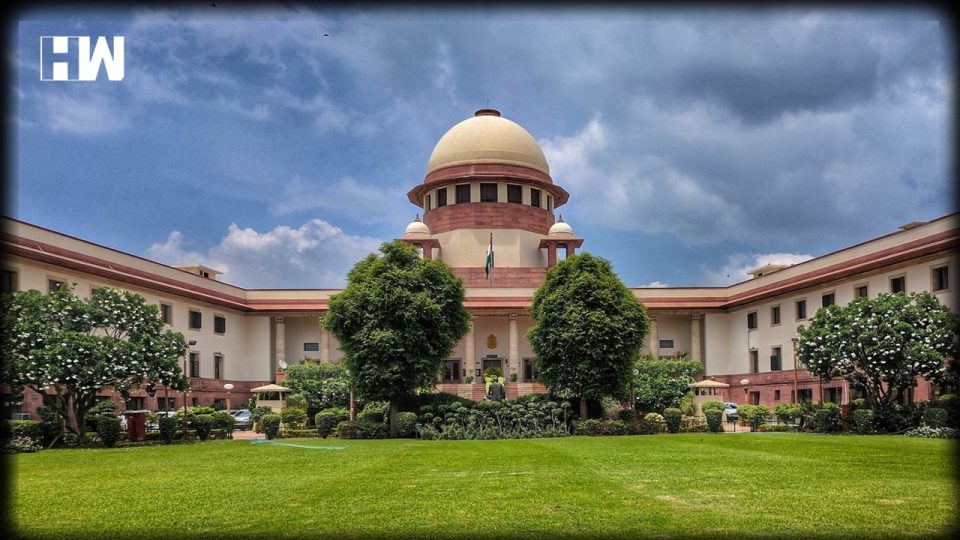The court held that Bhushan’s tweets were “based on the distorted facts” as he raised serious questions against the present and last three CJIs, which were “undoubtedly false, malicious and scandalous”.
New Delhi| The Supreme Court On Friday said judges’ magnanimity cannot be stretched to become a weakness against “a malicious and calculated attack on the judiciary”, as it held noted lawyer Prashant Bhushan guilty of criminal contempt for his two tweets against Chief Justices of India and the top court.
“The scurrilous/malicious attacks by the alleged contemnor No.1 (Bhushan) are not only against one or two judges but the entire Supreme Court in its functioning of the last six years. Such an attack that tends to create disaffection and disrespect for the authority of this Court cannot be ignored. The alleged contemnor has attempted to scandalise the entire institution of the Supreme Court,” a three-judge bench headed by Justice Arun Mishra pronounced.
The court held that Bhushan’s tweets were “based on the distorted facts” as he raised serious questions against the present and last three CJIs, which were “undoubtedly false, malicious and scandalous”.
“The criticism is not against a particular judge but the institution of the Supreme Court and the institution of the Chief Justice of India… The alleged contemnor being part of the institution of administration of justice, instead of protecting the majesty of law has indulged into an act, which tends to bring disrepute to the institution of administration of justice,” the bench comprising of Justices BR Gavai and Krishna Murari said.
Bhushan, in his defence, had said that his tweets, which were published in June, had in fact sought to bring to the notice of this court the serious shortcomings, which demand systemic correction. The top court rejected Bhushan’s defence.
The SC noted: “The scurrilous allegations, which are malicious in nature and have the tendency to scandalize the Court are not expected from a person, who is a lawyer of 30 years standing. In our considered view, it cannot be said that the above tweets can be said to be a fair criticism of the functioning of the judiciary, made bona fide in the public interest.”
The bench, addressing the submissions by senior advocate Dushyant Dave, who represented Bhushan in the contempt case, regarding the need of the judges to be magnanimous and not use the weapon of contempt in cases of comments on individual judges or fair criticism, said, “No doubt, that the Court is required to be magnanimous, when criticism is made of the judges or of the institution of administration of justice. However, such magnanimity cannot be stretched to such an extent, which may amount to weakness in dealing with a malicious, scurrilous, calculated attack on the very foundation of the institution of the judiciary and thereby damaging the very foundation of the democracy.”
An attack on the Supreme Court does not only have the effect of tending an ordinary litigant of losing the confidence in the Supreme Court but it may also result in lack of confidence in the mind of other judges in the country, the court added.
“A possibility of the other judges getting an impression that they may not stand protected from malicious attacks, when the Supreme Court has failed to protect itself from malicious insinuations, cannot be ruled out. As such, in order to protect the larger public interest, such attempts of attack on the highest judiciary of the country should be dealt with firmly,” the bench said.
The top court also dismissed Dave’s contentions on the requirement of a consent from the Attorney General, which was not obtained in this matter, before initiation of any criminal contempt proceedings.
“As far as the suo motu petitions are concerned, there is no requirement for taking consent of anybody, including the learned Attorney General because the Court is exercising its inherent powers to issue notice for contempt. It is equally well settled, that once the Court takes cognizance, the matter is purely between the Court and the contemnor. The only requirement is that the procedure followed is required to be just and fair and in accordance with the principles of natural justice,” the court concluded.
As an independent media platform, we do not take advertisements from governments and corporate houses. It is you, our readers, who have supported us on our journey to do honest and unbiased journalism. Please contribute, so that we can continue to do the same in future.

